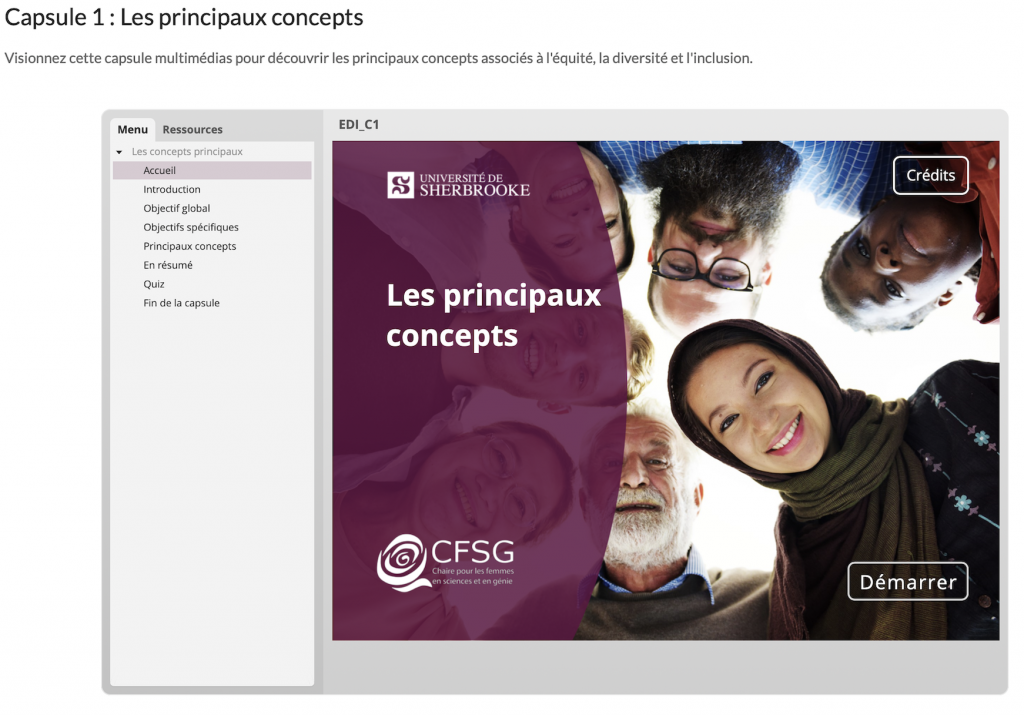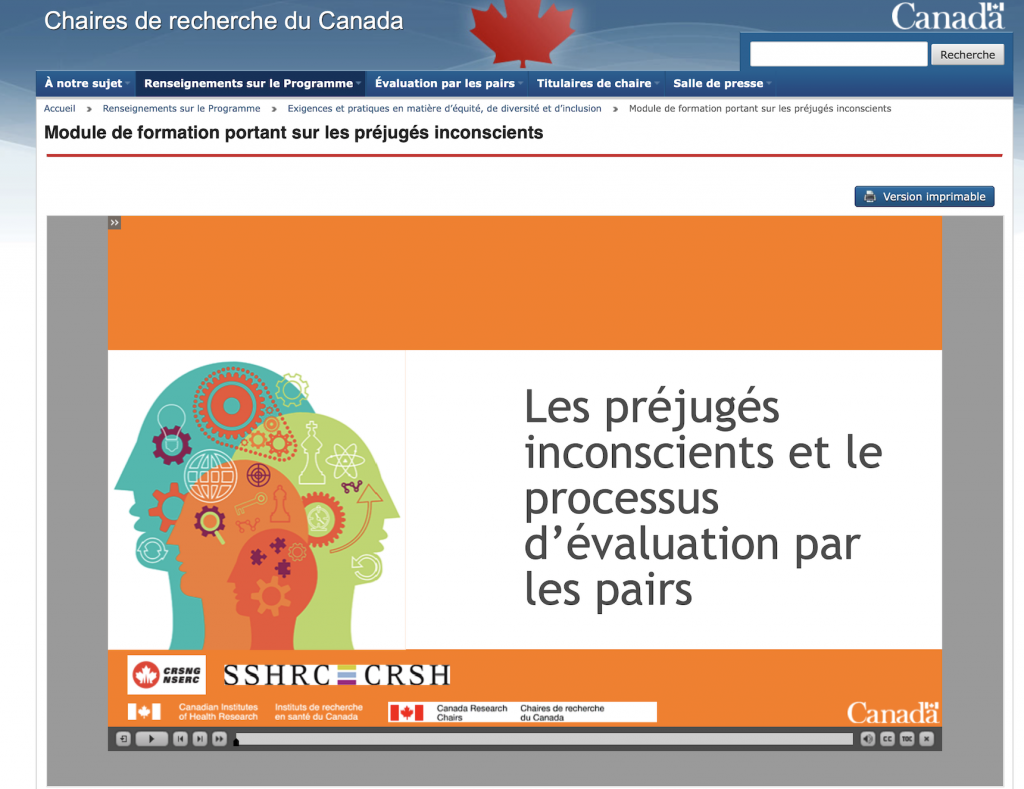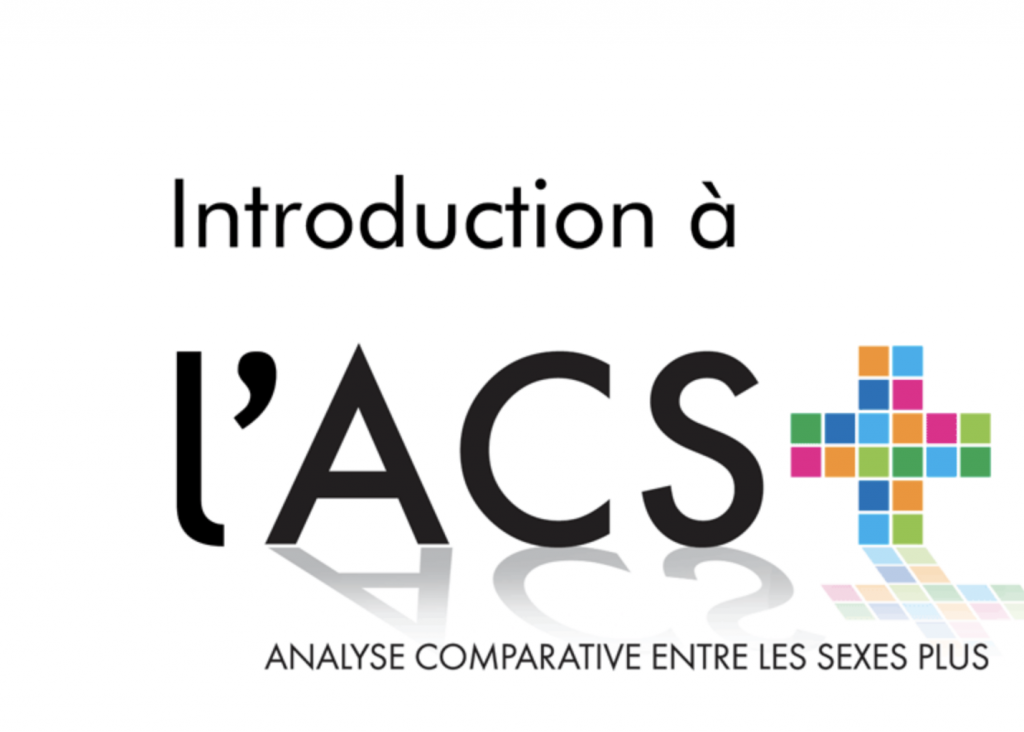Equity, Diversity and Inclusion
This policie aims at confirming the engagement of the Centre of Research in Ecotoxicology of Québec to make Equity, Diversity and inclusion a priority, by promoting practices on these principles. This is a guide to evolve and include new ideas and adpat to the diversity of EcotoQ members throughout the years.
The following definition were taken from « Guide du candidat : Tenir compte de l’équité, de la diversité et de l’inclusion dans votre demande » published by CRSNG. The understanding of the concepts of equity, diversity and inclusion may evolve while the policie is updated.
Gender refers to roles, behaviors, expressions and identities built by our society for girls, women, boys, men and people with various gender identities. The gender affects the perception that people have of themselves and of others, their way of acting and interacting and the power dynamics et resources in the society. Gender is often perceived as a binary construct (girl/woman and boy/man); however, we observe a large diversity in the way that people et groups understand, live and experiment gender.
Sex is a set of biological attributes for humans and animals. It is primarily associated with physical and physiological characteristics like chromosomes, genetic expression, hormone concentration and hormonal functions, and also the anatomy of the genitals and reproductive organs. There usually have two distinctive sexes, male and female, and there exists a series of variations in the biological attributes that define sex and the expression of these attributes.
Equity equals Justice, in other words, people, whatever is their identify, are treated in a fair way. This means that the mechanisms used to affect resources and decision making must be fair for all people and that no discrimination is introduced based on the identity of people. Measures must be adopted to end discrimination and inequities that were signaled and documented, and guarantee whenever possible equal opportunities for all. In fact, equity is essential to achieve equality. For example, it might be inequitable to treat people as if they were equal in a context where the system has long put in a disadvantage people in a way that these people could not function as equals.
Diversity is in the conditions, modes of expression, and the experiences of different groups defined by their age, their sex, their gender, their eduction level, their sexual orientation, their parent’s situation or responsibility, their immigration status, their first nation status, their religion, their disability, their language, their “race”, their place of origin, of ethnical origin, their culture, their socioeconomical situation or other attributes.
Inclusion is about the creation of an environment where everyone is respected in an equitable way and has access to the same opportunities.. On the organization’s scale, inclusion means that we survey and eliminate the obstacles (physical or procedural, visible or invisible, deliberate or non-deliberate) that impair the participation and contribution of people. It also requires an affirmation of the values and principles of fairness, justice and respect by being open to different opinions and perspectives, gaining an understanding of other cultures, experiences and communities, and making a conscious effort to be welcoming, helpful and respectful of all.
Intersectionality recognizes that injustices are never the result of single or distinct factors, but rather are the product of differences in social position, power relations and experiences. It recognizes that some people experience multiple forms of discrimination at the same time, and that these multiple oppressions can affect them in complex ways.
EcotoQ adheres to the principles of equity, diversity and inclusion and will promote equity, diversity and inclusion in all the activities that we organize, as well as in the support given to members and their students (or other qualified personnel).
|
Objectives |
Measure or Action |
Realisation index |
|
Raise awareness of EDI with all our members |
Inform all members of the engagements in equity, diversity and inclusion and the actions conducted to respect this engagement. Offer regular formation in EDI by experts for all our members Make sure that all members of EcotoQ committees have followed a recent formation on EDI Encourage regular and academic members to use EDI sensible practices in the selection and recruiting of students. |
Publishing an article on the subject in the newsletter l’EchotoQ Statutory agenda items for committee meetings |
|
Integrate EDI and best practices in the grant programs |
Revise regularly the eligibility criteria and application procedures to the different grant programs to make sure that the process is equitable and that the diversity is adequately represented. Prepare a mechanism so that members that are preoccupied by practices that go against the EDI policie can contact the EDI committee of EcotoQ, allowing us to take action. |
Verification statement of forms to make sure that the principles of equity, diversity and inclusion are respected. |
|
Include EDI and its best practices in the communications and the organization of training workshops, symposiums and seminars. |
Use gender-neutral and inclusive language in all texts, documents, statements, news and emails. Take into account the diversity and internationality while selecting members for the committee and for the organization of EcotoQ activities (symposium, workshops, etc.) Offer an EDI workshop to all members at the annual symposium Multiply opportunities to shine and be visible to all new members and students to make them known to all members, present their research and expertise and encourage collaborations. |
Changes about gender identity in all EcotoQ forms. EDI section added to all EcotoQ status
Presenting new members and their research in the newsletter « L’EchotoQ ». |
The EDI committee invites its members to know this policie and follow the trainings on EDI proposed on this page. You can communicate with the committee president or the coordonator for all questions or problems with the applying these principles in EcotoQ activities.
Instant translation of subtitles during an EcotoQ meeting
Formations
Four-part multimedia formation realized by the Chair for women in science and engineering (CFSG)
Les préjugés inconscients et le processus d’évaluation par pairs, Chaires de recherche du Canada (CRC)
Analyse comparative entre les sexes plus (ACS+), du gouvernement du Canada et des trois conseils
Books
Reports
Governmental initiatives
Guide du candidat : Tenir compte de l’équité, de la diversité et de l’inclusion dans votre demande, Conseil de recherche en sciences naturelles et en génie du Canada (CRSNG)
Equity, diversity and inclusion requirements and practices of Canada Research Chairs (CRC)
Other useful links
Guide de rédaction inclusive en sciences, Université de Sherbrooke
The urgency of intersectionality : conférence TED de Kimberlé Crenshaw (with french subtitles).
International Day of Women and Girls in Science – United Nations
Formation Barriers for LGBTQ Scientists avec Dr Erin A (password : =8?8XJ%l)



